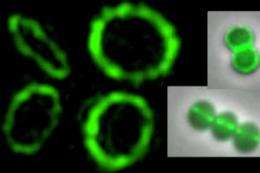Researchers Decrypt Structure Of A Bacterial Power Plant
A number of creatures along with humans require oxygen for survival. In the conversion into energy from nutrients, the oxygen is changed to water, for which the enzyme oxidase is accountable. It shows the final step of the supposed respiratory chain.
While humans have only one kind of these oxidases, the Escherichia coli (E. coli) has 3 optional enzymes accessible. In order to better know why E. coli and other bacteria require more than oxidases, Rudolf Virchow Center’s Prof. Bettina Böttcher in association with University of Freiburg’s Prof. Thorsten Friedrich have studied the molecular framework from E. coli of the cytochrome bd oxidase. This kind of oxidase is discovered only in microbial archaea and bacteria.
The eponymous cytochromes, one of type d and two of type b, are the major iron-having groups that turn on the operation of oxidase. The oxygen at the cytochrome d is bound and changed into water. The framework study disclosed that the structure of E. coli’s cytochrome bd oxidase is very same to the architecture of Geobacillus thermodenitrificans, another bacterium. “On the other hand, to our great shock, we found that a cytochrome d and cytochrome b have exchanged positions and hence the site of conversion of oxygen inside the enzyme,” claims Prof. Thorsten Friedrich.
The reason of this change can be that the cytochrome bd oxidase may accomplish a different operation: apart from the production of energy, it can serve to defend against stress by nitroxides and oxidative stress. Specifically strains of pathogenic bacteria display a high cytochrome bd oxidase activity. Since mankind does not have this kind of oxidase, these outcomes may additionally offer essential hints on the growth of new antimicrobials that aim on the pathogens’ cytochrome bd oxidase such as Mycobacteria.
Essential for this success was the high-performance new electron microscope, which has been worked on below the direction of Rudolf Virchow Center’s Prof. Böttcher since 2018.
